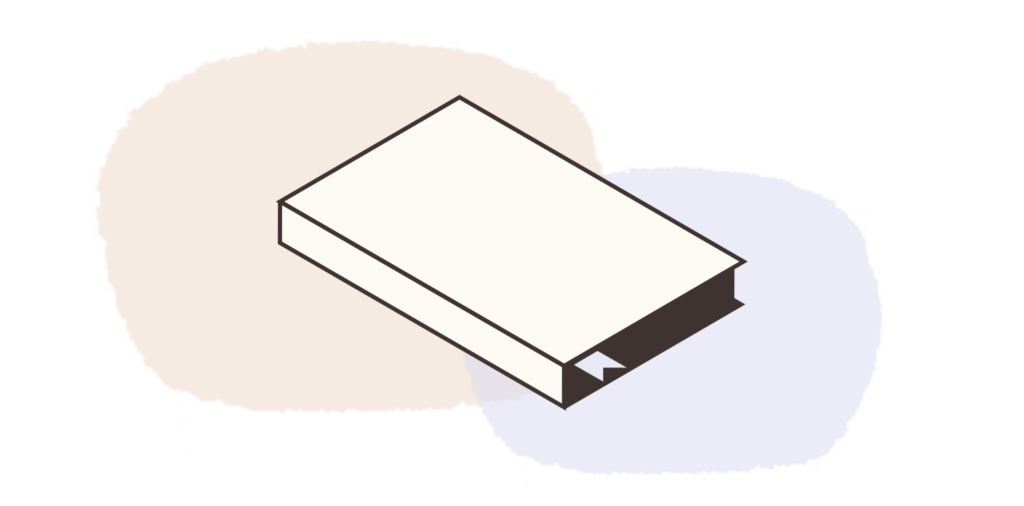Do you follow the online circuit of influential people whose work intersects self-mastery and top performance in their fields? If so, you already know that journaling is key to their MO. People such as: Tim Ferriss, Ryan Holiday, Benjamin Hardy, Leo Babauta, Shane Parrish, and Marie Forleo.
These talented men and women use journaling to illuminate, to make sense of the insensible, to create order and clarity. Their modern take on journaling adds a powerful spin to the kind of journaling that notable leaders, pioneers, and dreamers have been doing for centuries.

The key difference, perhaps, is that we’re now coping with unprecedented levels of cognitive overload. So our need for journaling – the focus and perspective that it provides – have never been greater.
What journaling methods do top performers use?
How can you apply those methods to your own benefit?
And what evidence-based research is available to support these methods?
We’ll explore those questions in detail below.
Setting dreams in motion and other immediate benefits of journaling
Let’s start off by saying that there is no one right way to journal – it’s different from person to person and can change depending on what you may be working through or what your goals are.
Many of us don’t know truly what we think about something until we investigate it, challenge it, and write it down. Journaling requires being undistracted. It’s an opportunity to keep checking in with who you are and who you want to be.
Marie Forleo
But there are underlying reasons as to why journaling is beneficial, both to our wellbeing and mental health, as well as a productivity tool. If you understand those reasons, you can choose the method that best fits your needs in any given writing session.
The only rule is that you have to journal regularly. Journaling does for your mind what exercise, sleep, and good nutrition do for your body. Without consistent practice, they’re just not effective.
Journaling creates space to untangle
“Your mind is for having ideas, not holding them.” David Allen
Each human being is a complex web of interpretation for the thoughts, emotions, and experiences that make up the moments of our lives. Trying to make sense of these many, and often competing sets of input, is impossible without space for perspective.
In psychology it’s called defusion: “The separation of an emotion-provoking stimulus from the unwanted emotional response as part of a therapeutic process, in the same way as when a bomb is defused.” That last line is an insightful metaphor, because it shows how the process of defusion can prevent an unwanted explosion in the form of unconscious release. We’re always better off releasing things consciously, bit by bit. Otherwise, the same painful lessons are bound to show up in our lives until we acknowledge them.
Journaling helps you defuse by dumping all of the contents of your mind onto the page where you can begin to identify, separate, and then integrate them in a way that makes sense to you.
Journaling sets your dreams in motion
“If one advances confidently in the direction of his dreams, and endeavors to live the life which he has imagined, he will meet with a success unexpected in common hours.” –Henry David Thoreau
You probably know of someone who feels chronically dissatisfied with their lives, but doesn’t actually know what they’d choose to do,or be if they could magically will their desires into existence. It’s like having someone else order for you at a restaurant, and then complain you didn’t get what you wanted. Sometimes you’ll order a dish and it won’t turn out as you’d expect. But if you don’t sit down and take a moment to think about what you want, your chances of getting it are effectively null.
Journaling invites you to consistently consider what your dreams are, your motivations for wanting them, and how to materialize them.
Journaling shines a spotlight on resistance
“All The Woulda-Coulda-Shouldas / Layin’ In The Sun / Talkin’ ‘Bout The Things / They Woulda-Coulda-Shoulda Done / But All Those Woulda-Coulda-Shouldas / All Ran Away And Hid / From One Little Did.” -Shel Silverstein
Each of us is wired to struggle with certain self-limiting beliefs, most of which can be summarized as some version of ‘I’m not enough’. Not smart, pretty, successful, rich, popular, you fill-in-the-blank enough. It is possible to reset those self-limiting beliefs, and arguably, that is one of the main objectives of those on the path to self-mastery. But – first we have to recognize and admit that we have these beliefs in order to let them go.
This is tricky because most of our thoughts are automatic and unconscious. And it’s estimated that 80% are negative.
Let’s say you’re using a journal to write down some big plans as defined in the section above. When you journal consistently, you’ll begin to notice that if you write something that you want, but which you don’t believe you’re worthy or capable of having, it will resonate with a feeling of resistance. This resistance offers powerful insight to identify and release beliefs of unworthiness or inability.
Whenever you think of a negative thought, you can begin to counter it with a positive one. It begins in your journal, but eventually becomes an automatic positive response in your mind that can dramatically transform your life.
Journaling shows progress
Journaling helps to reframe our progress in a way that keeps us motivated because we can easily look back and measure how far we’ve come, not how much farther we have left to go.
It’s what famed strategic coach Dan Sullivan calls being in The Gap vs The Gain:
“When you’re in The Gap, you feel as though you haven’t accomplished anything at all. This is because even though you’ve moved forward, the ideal remains distant from you. The ideal is a moving target. But if you turn around and measure your progress against where you started, then you’re in The Gain, and you’ll experience a sense of having moved forward, of having achieved something, and you’ll be motivated to continue on to your next stage of growth.” -Dan Sullivan
Apart from being a great exercise in motivation, this method of journaling is also good for going back and spotting patterns in your progress that you can optimize and leverage.
Journaling helps ‘you do you’
“Authenticity is the daily practice of letting go of who we think we’re supposed to be, and embracing who we are.” – Brene Brown
As you start untangling your mind, defining your dreams, noticing resistance, and tracking progress through journaling, you’re likely to pick up on something else – equally insightful. Only you can define what success looks like for yourself. This bears repeating: Only YOU can define what success looks like for yourself. Isn’t that liberating? It frees you up to pursue what matters to you, not what society, or school, or Instagram have deemed important.
Moreover, your version of growth and success is going to look different from others, and your only point of reference should be yourself. Yes, you can look elsewhere for inspiration or ideas. But mistaking those as a blueprint for the ‘ideal’ life is a sure path to misery. There is only one you, just as there is only one of everybody, and though we follow universal patterns, we’re not here to be exactly alike or to want the same things. Journaling can serve as a clear and constant reminder to follow the beat of your own drum. It’s not better, or worse, than anyone else’s – it’s simply yours.
Journaling helps us remember what matters: values, gratitude, priorities
“Men more frequently require to be reminded than informed.” -Samuel Johnson
You can use your journal to set reminders for behaviors you’d like to turn into habits, such as creating a morning gratitude practice. You can also create a list of virtues to which you aspire, and read them daily, like a mantra. Or make bucket lists of books to read, films to watch, and places to visit. The next section highlights some of the most popular journaling methods.
19 insightful journaling methods and how to use them
Journaling methods come in all flavors, and some have even developed cult followings, like the Bullet Journal and the 5-Minute Journal. Many of these suggested methods are complementary and serve different sets of purposes, as detailed in the preceding section. Some you’ll want to actively practice on a daily basis. Others you’ll keep for periodic reference. And others still are for working through challenging moments or life events. The only way you’ll know what works for you is by trying them.
Morning Pages: A few pages, stream of consciousness style, to dump your feelings, release fears, and boost creativity. Originally referenced in the book The Artist’s Way, by Julia Cameron.
Gratitude Journal: A powerful daily practice for shifting your mindset to focus on the good in your life, and invite more of it in.
Evening Reflection: End your day with reflections on what went well, what didn’t, and how you can improve tomorrow. The more specific your questions, the more of an impact they’ll have on your journey to personal growth and self-mastery.
Creative Brainstorming: Don’t let great ideas disappear – write them down in one place!
Daily Focusing: What you plan to accomplish on a given day – and what you’ll say no to in order to stay on track.
Affirmations: Positive messages to reinforce self-love, self-acceptance, compassion, and faith.
Food Logging: Great for taking notice of how food affects your mood, energy levels, and physical being.
Exercise Logging: Track your performance against your fitness goals and take delight in the marginal gains that accrue over time into significant results.
Quotes: Find inspiration on demand. One well-timed quote can change the trajectory of your entire day.
Virtues: As Ryan Holiday posited, ‘who does philosophy want you to be?’. Make a list of the virtues that make your life worth living and remind yourself of them regularly.
Bucket Lists: Lists of books to read, films to watch, food to try, places to visit – whatever calls you.
Short-Term Goals/Reflections: (Both this item and the next one on the list are best written in the inside cover or some other prominent page of your journal so that you can refer to them regularly and stay motivated and focused.) What progress have you made in the past 30, 60, or 90 days? What do you want to achieve in those future brackets of time?
Long-Term Goals: What progress have you made in the last 1, 5, or 10 years? What do you want to achieve in those future brackets of time?
Visual Journaling: Sometimes doodles can go deeper than words…
Random Musings and Occurrences: Things that caused a blip on your radar – you never know how they may serve you later in connecting the dots.
Dream Journal: All the answers you’ll ever need are safely tucked in your subconscious. Dreams provide rich symbolic material for deciphering those answers, and even just the process of writing them down is often enough to unlock meaningful insight.
Thought Balancing: We’re plagued with thousands of automatic negative thoughts (ANTs) every day. Writing them down, and then offering balancing thoughts to counteract, is a great habit for shifting to a positive mindset.
Mood Assessments: Track the fluctuations of your moods and correlate them with other events recorded in your journal to discover helpful or harmful patterns.
Guided Prompts: What advice would your future self give you for today? What is your biggest insecurity? What is your earliest childhood memory. The list is endless… and so are the insights.
What science says about journaling for wellbeing and mental health
The practice of journaling is linked to positive outcomes in wellbeing, mental health, and physical health. Below are some of the most common areas that offer evidence-based findings, supported by three decades of research.
Anxiety and Stress: Journaling plays an instrumental role in helping us identify our automatic negative thoughts so that we can engage in effective coping strategies when anxiety and stress arise. This area has gained renewed attention in the context of COVID-19.
Sleep Management: Journaling before bed is linked to reduced anxiety, better quality of sleep , and even aids in falling asleep faster, when combined with creating a to-do list for the following day .
Working Memory: Journaling improves working memory by reducing intrusive and avoidant thoughts about negative events.
Immune Function: Multiple studies have linked journaling to boosting our immune function and even increasing our antibody response after we’ve been infected with a virus.
Expressive writing and recovery from trauma
In addition to using journaling preventatively, journal writing is used as a form of therapy in recovering from trauma or working through difficult life events.
Social psychologist and language expert James W. Pennebaker is considered the pioneer in this field of psychological research on therapeutic forms of journaling or ‘expressive writing’.
One of the most interesting discoveries of Pennebakers’ research, using textual analysis of expressive writing, shows that those who benefit the most from this form of therapy follow distinct patterns. They begin by expressing from a place of feeling and suffering. As they release difficult emotions on paper, their writing progressively shifts to interpretations of those feelings, with an increase in the use of cognitive words such as ‘realize’, ‘effect’ and ‘know’. Notably, those who start off using cognitive words without first engaging their feelings do not experience the same benefits.
Expressive writing has been shown to support depression, recovery from addiction, processing of grief, and reducing anxiety in medical patients.
Frequently asked questions about journaling
Is it better to write in a physical journal than to type?
Whatever works for you – and there’s no reason you can’t do both. While research is limited, there is some evidence to support that handwriting generates more neural activity and may therefore offer greater benefit to working memory. Most of the research in this area deals with children and the acquisition of handwriting as a skill.
Is there an optimal time of the day to journal?
What’s most important is that you journal consistently, regardless of the time of day. It’s commonly thought, however, that journaling first thing in the morning or right before bed is particularly beneficial because we access deeper states of consciousness when we are relaxed and our brainwave frequencies are operating at the Theta or Alpha states.
What if I get stuck and I don’t know what to write about?
Like anything, journaling is a habit that takes time to develop. If you’ve tried it in the past unsuccessfully, that doesn’t necessarily mean it isn’t right for you. Setting aside a dedicated time of day and using guided prompts are useful hacks to help you get past any initial blocks.
How you can use Kai to turn journaling into a powerful daily habit
Kai uses chat-based conversation to send you guided journaling prompts every morning and evening. These prompts are centered around various themes such as gratitude, self-inquiry, and focus. Kai also offers you helpful interventions if you’re feeling stressed or down. To get an appropriate guided exercise, simply start chatting with Kai and explain how you’re feeling. Your responses are logged in a private online journal that you can access at any time.
Here are some examples of the kinds of guided journaling prompts you’ll get from Kai:
Examples of morning routine prompts: What is one thing you are grateful for today? Who have you enjoyed being around recently, and why? How do your friends and/or family members show they care about you?
Examples of evening routine prompts: What’s the best thing that happened today? What simple pleasures did you enjoy today? What’s the most beautiful thing you saw today?
You’ll also get nuggets of wisdom, inspiring quotes, acts of kindness, mood assessments, conscious breathing exercises, and positive affirmations to release self-limiting beliefs and identify automatic negative thoughts.
References and suggested reading
- Greater Good Science Center at Berkeley University: How to journal through your struggles
- Advances in Psychiatric Treatment: The physical health benefits of expressive writing
- British Journal of Health Psychology: The physical health effects of very brief writing
- Emotion Journal: How expressive writing promotes self-distancing
- Psychological Science: Writing about emotional experiences as a therapeutic process
- American Psychological Association: Written exposure therapy for PTSD
- The Oxford Handbook of Stress & Mental Health: Expressive writing and stress-related disorders
- Journal of Experimental Psychology: Expressive writing can increase working memory capacity
- Applied Psychology: Effects of gratitude interventions on sleep quality
- Michele Obama | Becoming: A Guided Journal for Discovering Your Voice
- Kathleen Adams | Journal to the Self: Twenty-two Paths to Personal Growth
- Natalie Goldberg | The True Secret of Writing: Connecting Life with Language
- James Pennebaker | The Secret Life of Pronouns: What Our Words Say About Us
- James Pennebaker | Expressive Writing: Words that Heal
- Sandra Marinella | The Story You Need to Tell: Writing to Heal from Trauma, Illness, or Loss
- Julia Cameron | The Artist’s Way





